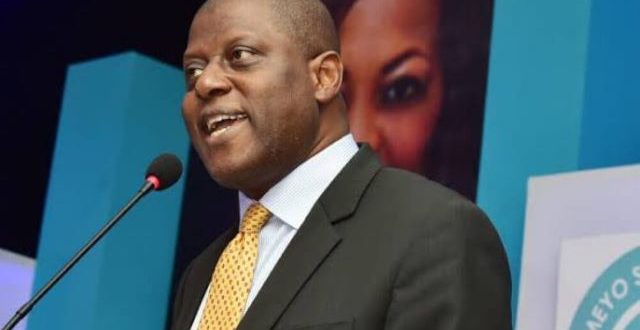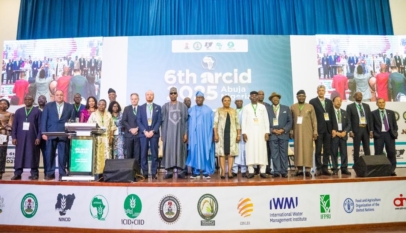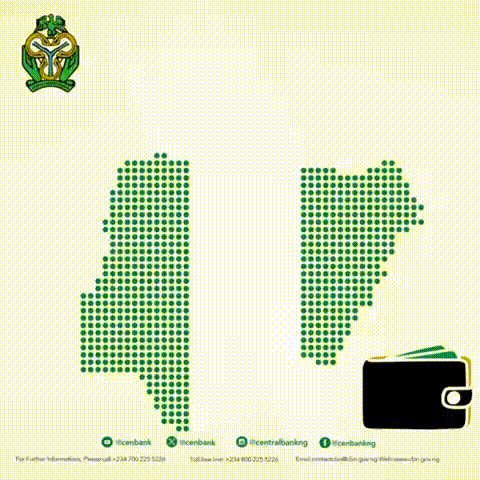
CBN’s MPC raises interest rate by 400 basis points to 22.75%
Says Monetary policy reforms will check inflationary tide, check foreign exchange distortions, Naira grossly undervalued
Story by: Abiodun Folarin
The Monetary Policy committee (MPC) of the Central Bank of Nigeria (CBN) on Tuesday increased interest rate- the Monetary Policy Rate (MPR) by 400 basis points from 18.75 per cent to 22.75% saying that the hike in policy rate will help tame inflation pressure.
The MPC also increased the Cash Reserve Ratio to 45.0 per cent from 32.5 per cent, adjusted the asymmetric corridor around the MPR to +100/-700 from +100/-300 basis points.
The Committee’s decisions, which were centered on the current inflationary and exchange rate pressures, projected inflation, and rising inflation expectations, also agreed on retaining the Liquidity Ratio at 30 per cent.
In a communique read by the Governor of the CBN, Mr. Olayemi Cardoso, he explained that considering the option of a hold policy, the evidence revealed that previous policy rate hikes had slowed the rise in inflationary pressure but not to a desirable extent.
He said, “members considered various scenarios of hold and hike, and concluded that inflation could become more persistent in the medium-term and thus pose more regulatory challenges if not effectively anchored. The balance of the argument thus leaned convincingly in favour of a significant policy rate hike to drive down inflation substantially.
“The MPC also deliberated extensively on various distortions in the foreign exchange market including the activities of speculators, putting upward pressure on the exchange rate with high pass-through to inflation. Members were, however, convinced that the ongoing reforms in the foreign exchange market will yield the desired outcome in the short to medium term.
“Some of these reforms include: the unification of the foreign exchange market; promotion of a willing buyer willing seller market; removal of all limits on margins for IMTO remittances; introduction of a two-way quote system and the broad reforms in the BDC segment of the market to restore stability, enhance transparency, boost supply, and promote price discovery in the Nigeria Autonomous Foreign Exchange Market (NAFEM).
“The Committee reviewed the key financial indicators of the banking system and noted that the system remained stable. To further ensure the stability of the banking system, the MPC called on the Bank to increase system buffers by recapitalizing the banks to improve resilience against potential risks. Members further enjoined the Bank to strengthen surveillance and compliance regarding its earlier guidance on the application of foreign exchange revaluation gains.
“The Committee identified non-monetary factors driving inflation such as the persisting insecurity and infrastructural deficits and noted the role of fiscal policy in addressing these shortfalls, while reiterating the commitment of monetary policy support.
“In this regard, the Committee applauded fiscal policy initiatives towards reducing the cost of living for ordinary Nigerians, including the ongoing efforts to improve food supply and provide mass transit CNG buses to ease the cost of transportation; and the civil service reforms to improve the efficiency of government amongst others.”
MONETARY POLICY REFORMS
Cardoso said while presenting the communique from the apex bank’s Monetary Policy Committee (MPC) meeting said its on-going reforms will check rising inflationary trend and address distortions in the foreign exchange market
Cardoso had announced the committee’s decision to adopt aggressive inflation-targeting by increasing the benchmark interest rate by 400 basis points from 18.75 per cent to 22.75 per cent.
According to him, the argument leaned convincingly in favour of a significant policy rate hike to force down inflation substantially
He said that the MPC deliberated extensively on various distortions in the foreign exchange market, including the activities of speculators, putting upward pressure on the exchange rate with “high pass-through” to inflation.
Cardoso said that the MPC also identified non-monetary factors driving inflation, like the persisting insecurity and infrastructure deficits.
“It notes the role of fiscal policy in addressing these shortfalls, while reiterating the commitment of monetary policy support.
” In this regard, the committee applauded fiscal policy initiatives towards reducing the cost of living for ordinary Nigerians, including the ongoing efforts to improve food supply,” he said.
He said that headline inflation rose to 29.90 per cent in January from 28.92 per cent in December 2023.
According to him, food inflation increased to 35.41 per cent from 33.93 per cent, while core inflation rose to 23.59 per cent from 23.07 per cent.
” The major factors driving inflationary pressure remains exchange rate pass-through, rising cost of energy, high fiscal deficits, and lingering security challenges in major food-producing areas.
“In addition, global factors such as tight financial conditions and trade disruptions from ongoing geo-political tensions, remain significant upside risks to the outlook for domestic inflation.
“Staff forecasts, therefore, indicate that inflation will remain on an upward trajectory in the near term before commencing a descent,” he said
He said that members of the MPC were convinced that the ongoing reforms in the foreign exchange market would yield the desired outcome in the short to medium term.
He listed some of the reforms to include the unification of the foreign exchange market and promotion of a willing buyer willing seller market.
Others are removal of all limits on margins for International Money Transfer Operators (IMTO) remittances, introduction of a two-way quote system and the broad reforms in the Bureau De Change (BDC) segment of the market.
“The Committee reviewed the key financial indicators of the banking system and noted that the system remained stable.
“To further ensure the stability of the banking system, the MPC called on the CBN to increase system buffers by recapitalising the banks to improve resilience against potential risks.
“Members further enjoined the CBN to strengthen surveillance and compliance regarding its earlier guidance on the application of foreign exchange revaluation gains,” he said.
NAIRA GROSSLY UNDERVALUED
Cardoso also said while presenting a communiqué from the 293rd meeting of the apex bank’s Monetary Policy Committee (MPC) that the Naira is grossly undervalued.
He said that the foreign exchange market had not been functioning effectively and had been distortionary in outcome, thereby creating a serious challenge for the Naira.
“We are presently investigating some of the manipulations that have been taking place.
“For distortions that came up due to bad behaviour, those involved will be made to face the full wrath of the law ” he said.
The CBN governor said that the apex bank was clearing the backlog of genuine forex claims, adding that the country’s foreign reserves now stood at 34 billion dollars
“Just today, we paid another 400 million dollars to those that have been so identified,” he said.
He said that it was important that the foreign exchange market had a good amount of liquidity and minimal distortion.
“In recent times we have been able to attract liquidity into the system.
“We have attracted up to two billion dollars as a result of the tools that we have used to calibrate interest rate.
“We are collaborating with law enforcement agencies to ensure that we can understand better what is going on in the market.
“We are moving to a very aggressive regulatory environment where we will have zero tolerance for sharp practices,” he said.
“He said that players in the market would have to abide by all CBN regulations as those who refuse would face the consequences.
According to him, a very thorough exercise is going on to identify what went on in the past and what needs to be done.
Cardoso said that the CBN was moving away from interventions programmes and development finance initiatives like the Anchor Borrowers Programme, as they were time-consuming and counter productive.
“Everybody’s concern js about price stability, and we should put everything we have into ensuring price stability.
“The interventions took away a lot of time for things we do not have the expertise to do, and it created a lot of distortions in the economy through inflow of money supply.
“The interventions that took place in the recent past were estimated in excess of N10 trillion. It did a lot of damage to the economy, ” he said.
He, however, said that the apex bank was taking concrete steps to recover loans that were given out through such interventions.
Tuesday’s MPC meeting was to first under Cardoso as CBN governor.








